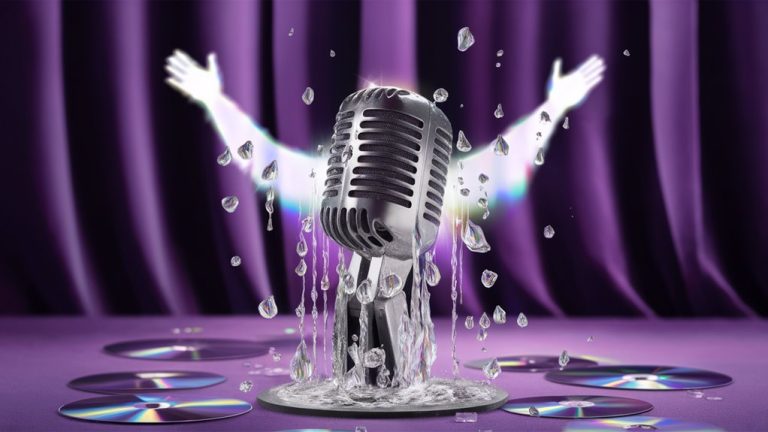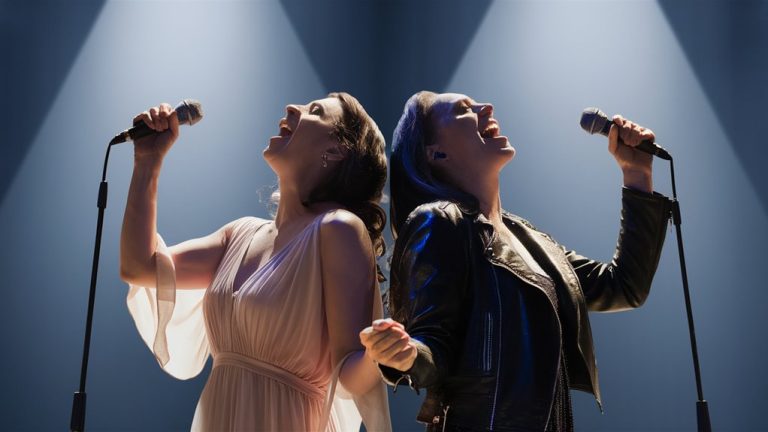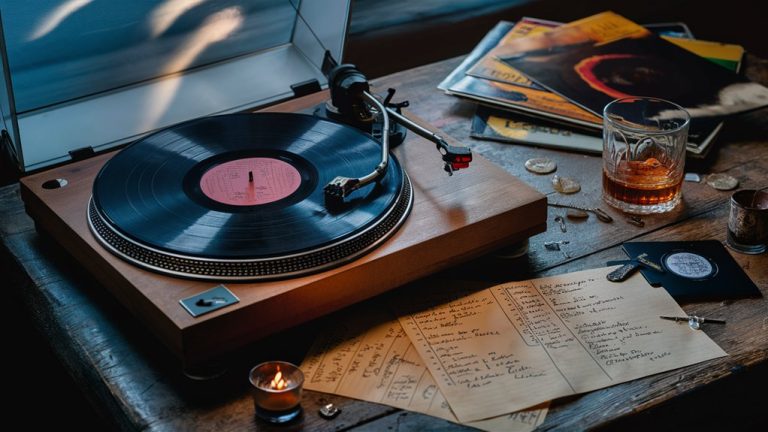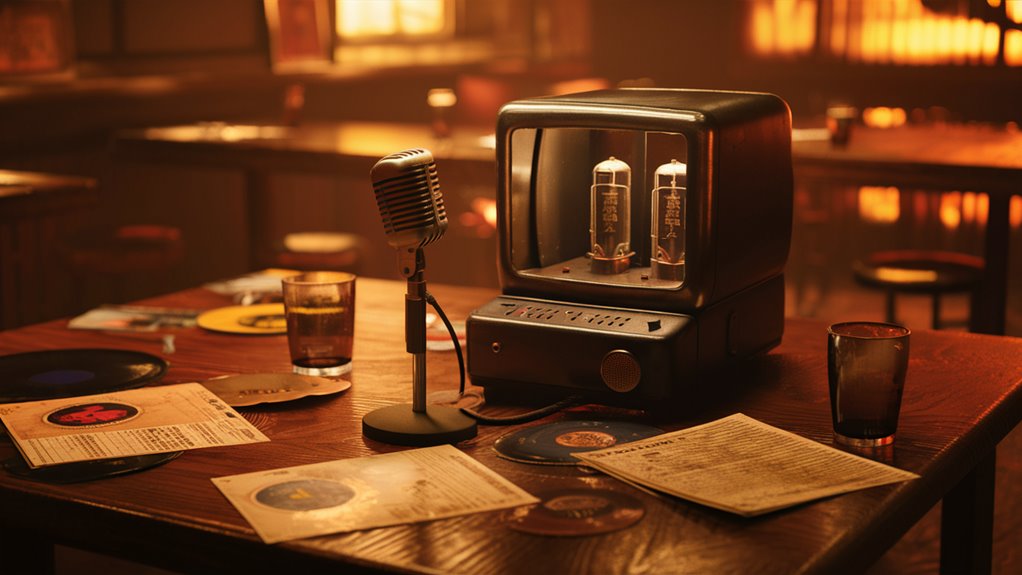
The Rise of Karaoke and Its Huge Pop Hit
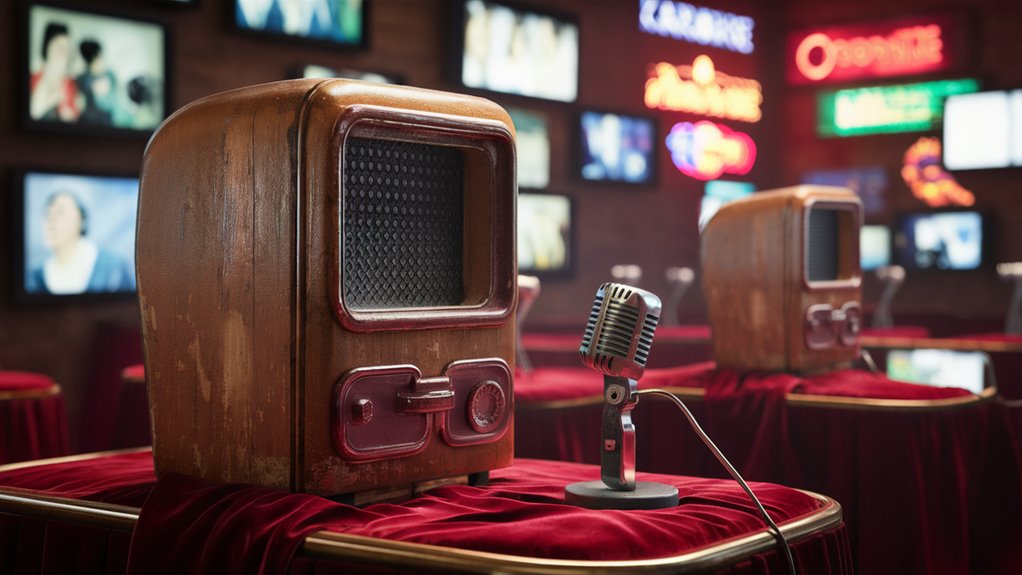
The Start of Today’s Karaoke
In 1971, a man from Japan named Daisuke Inoue changed fun when he made the first karaoke machine in Kobe, Japan. His big coin-run “8-Juke” box mixed 8-track tapes with song words on paper, setting up what we know as karaoke today.
From Cool New Thing to Big Deal in Japan
The late 1970s brought new karaoke rooms that switched up night fun in Japan. Big groups like Toshiba saw big chances, making lots of machines. These spots let small groups sing in their own rooms, free from worry about what others thought.
Karaoke Hits Other Places and Gets Tech-Smart
By the 1980s, karaoke fun had moved all over Asia, changing how folks had fun there. The 1990s saw karaoke hit the West, bringing the fun to lots of new folks. Moving from old tech to new smart gear that works with phones shows how well karaoke can shift and stay loved in today’s fun world.
This move from a small idea in Japan to a huge fun thing worldwide shows how much all kinds of folks love karaoke. Today’s tech keeps the fun part of karaoke while adding cool new parts.
The Start of Karaoke: A Huge New Fun Idea
Back in 1971 in Kobe, Japan
Daisuke Inoue, a piano man in Kobe, Japan, made the first karaoke machine in 1971, changing fun stuff big time. He had to make the machine when local work men often wanted his music for work parties. Since he couldn’t go to all, Inoue made tapes of his music. The Impact of Soundproofing in Karaoke Rooms and Why It Matters
The First Karaoke Machine
His 8-Juke box was a hit fix to meet more needs. This coin-run box played tunes on speakers, and let singers read the words from paper rolls. Though this machine was a game-changer, Inoue did not lock it down with a legal bind.
Where “Karaoke” Comes From and How It Grew
The word karaoke comes from Japanese words: “kara” (empty) and “ōkesutora” (band), making it mean “no-band.” After the 8-Juke came out, more boxes spread fast in Japan’s pubs and clubs. This growth made karaoke a big fun thing all over the world that still rocks today.
The Big Jump of Karaoke in 1970s Japan
New Stuff and Big Sales
Karaoke waves changed Japan’s party scene in the early 1970s, turning music fun new ways. The buzz first built in small snack bars and host clubs, as a cheap pick over live shows. By 1972, big names like Toshiba and JVC led in making karaoke boxes, pushing tech onward in this field.
Tech Moves
The first karaoke setups used 8-track tapes with music for famous songs. These first tries, like the strong Juke-8 by Daisuke Inoue in 1971, had songbooks, not yet screens. Even with simple start, these boxes changed the fun world of Japan, being a must for shop bosses.
More Places and New Karaoke
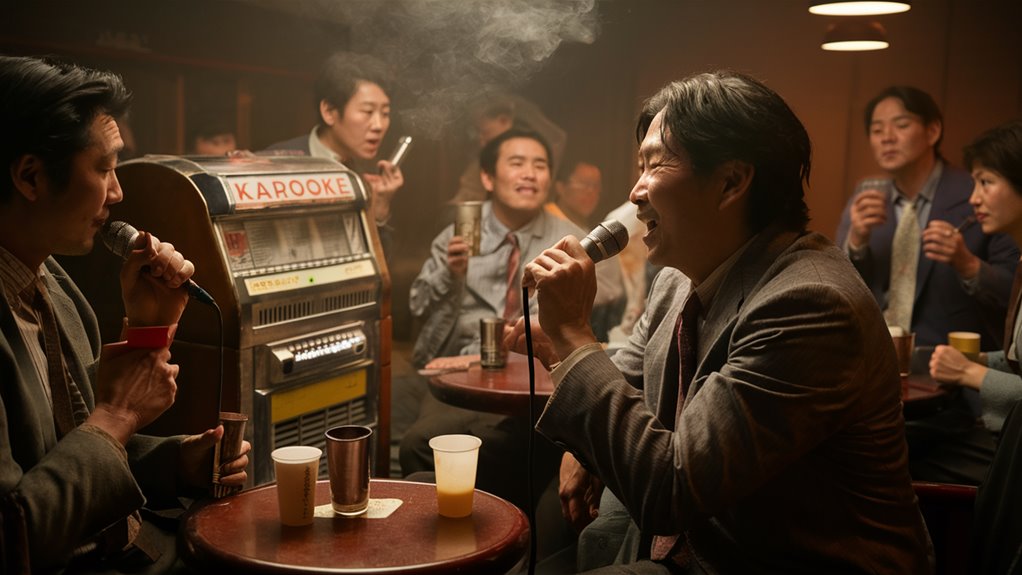
Asia Feels and Grows With Karaoke
Japanese fun teams sent karaoke tech to key spots in Asia during the 1980s, like South Korea, Taiwan, and the Philippines. This smart move made a splash, setting up karaoke as a key fun part in these lands. The tech got big in bars, clubs, and spots for families, making a strong mark all over.
New Takes and Changes in the West
The early 1990s saw karaoke step into the West, changing to meet local likes. Old Japanese karaoke rooms turned into open spots and bar fun spots in the USA and Europe. The tech leap from laser discs to CD+Gs and at last digital setups switched how content comes and user feels.
New Tech and Online Shifts
Big tech jumps have changed forever the look of the karaoke field. Using smart scoring, birth of cell karaoke apps, and bringing in social media share tools have grown karaoke past its old lines. Now streaming setups and cell-based karaoke options let more people get to this fun form, making big shots for both big spots and home fun places. 호치민 퍼블릭가라오케 추천받기
The Tech That Makes Karaoke Now
From Old Tech to Cool New Tech
Today’s karaoke systems show a smart mix of lots of tech parts working together to make big fun. These systems have gone from simple sound mixers to smart digital setups, changing how we get music fun.
Big Steps in Tech
Karaoke tech started with analog boxes using two-track tape sets – splitting music and singing parts. A big tech jump in the 1980s brought in LaserDisc tech, letting words show with tunes and better sound. The 1990s brought CD+G (CD plus Graphics) as the go-to, giving better sound and simple screen looks.
New Ideas in Karaoke Now
Today’s digital karaoke has top tech tools:
- Huge song lists you can get to fast
- Touch screens that make it easy to pick songs
- Tech to make your singing sound better
- MP3+G and tight video setups
- Pro sound work
- Smart lists you don’t have to set by hand
- Picking songs from your phone
- AI making your voice sound great
- Seeing how well you sing, live
- Songs from the cloud, ready when you are
These big steps have changed karaoke from a simple singing fun to an all-in, many-ways entertainment, setting new bars in digital sound-show systems.
Social Shake-Up By Karaoke
All Over Fun Shakeup
Karaoke has flipped how we meet and have fun since it popped up in the 1970s. This big music wave broke down walls, making spots where all kinds of folks meet in music fun. In Japan, karaoke life got into work spots fast, turning into a big tool for team fun and chilling after work.
From Japan to All Over
The change of karaoke from a Japanese fun trick to a world-wide group fun push marks a big culture switch. Throughout the 1980s and 1990s, karaoke spots popped up across Asia and then took over Western fun spots, changing night fun and group spots.
Big Word and Group Power
The big mark of karaoke goes way past just fun. This wave has changed how we get music, made ways for anyone to show off music, and switched how we see skill and true sound. Area-based styles have come up, like KTV (Karaoke TV) in China and noraebang in Korea, while also making waves in new fun styles, hitting big on TV song shows and digital karaoke spots.
Now and Cool Karaoke Fun
Online Shift in Karaoke Boxes
Old-school bar karaoke has turned into a smart, all-in digital fun web. The now karaoke line holds many platforms and techs, mixing well in fun spots and digital spots.
Top Gear and Mixing Tech
Pro karaoke spots now show off top tools like live voice bettering, sound lift effects, and sing scores. Top spots like K-Box and Karaoke Town have private rooms with touch picks and pro sound gear.
Online Spots and Phone New Stuff
Stream tech has flipped how easy it is to get to karaoke through platforms like Smule and TikTok, letting global song fun. The push of smart TV links and game set fits has changed home fun, while YouTube karaoke spots give tons of songs for fans.
Pro Fun Grows
The karaoke game has grown to have pro leagues, TV sing-offs, and focused music labels. Tech moves on with virtual sing fun and AI tools, keeping karaoke big in the now fun world.
New Stuff and What’s Next
- Songs from the cloud
- Linking many platforms
- Social media links
- Live fun facts
- Virtual live shows
The karaoke world keeps on growing through new tech and easy-to-reach fun, keeping it a main part of today’s fun world.
